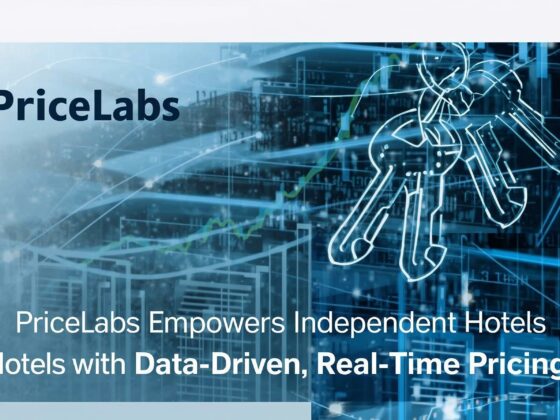Nike’s brand is skidding, lessons learned from over-focusing on the ROAS and performance marketing. How could hotels learn from this? AI and Luxury good match?
Hello,
Two things I found most interesting this week was Brand marketing and AI. I think AI will lead to more people having access to more luxury. Just like industrialization and IKEA led to more people having access to better homes.
Best, Martin
Sponsored by Klairhaus. Support the newsletter, treat someone to great office gadgets.
Nike’s brand marketing slump
Nike is one the the brand marketing models of the last decade. They started off making cheap running shoes. They have managed to turn that into the “luxury brand” of sports. But their significant stock price drop of $25 billion, or 32%, on June 28, 2024 wasn’t good. The drop was attributed to an overemphasis on data-driven leadership at the expense of the brand’s emotional connection with consumers. I discuss brand marketing more in this week’s column. The stock market doesn’t seem to believe in the brand too much, I think the kids still do though.
BRAND CHALLENGES
Is Creativity the New Ad Targeting?
For the last two decades advertising has been on a race to the highest ROAS. The race to the most effective ads. In the Mad Men days (and the pre-internet era) the pendulum had swung to who could come up with the most creative ad. Which was fun, but not always effective. We’ve now swung all the way to the most boring ads possible with the most relevant targeting. Meta’s AI targeting is known to be super efficient. It’s also driving click costs up. A new trend is starting, to get creative again and reduce click costs because the ads are just hitting the right chord with the audience.
CREATIVITY TARGETING ADS
About me: I'm a fractional CMO for large travel technology companies helping turn them into industry leaders. I'm also the co-founder of 10minutes.news a hotel news media that is unsensational, factual and keeps hoteliers updated on the industry. Booking’s AI planner
Nothing in Booking’s AI planner could not be done through Gemini, ChatGPT or Perplexity. It is probably more accurate on the hotel prices but Gemini probably has access to all hotel rates as well. The point isn’t that. As I wrote in my column last week, interacting with apps will be normal soon. The question is will people want to stick within Google or move to specialized sites like Booking? So far the world has been splitting search into multiple verticals (OTAs for travel, Amazon for products, Google for general things etc). But I wonder if AI companies will bundle that.
AI TRIP PLANNING
AI and Future of Travel Management Companies
The traditional travel management company (TMC) model is going to see a transformation due to AI’s influence on travel booking and support. New tech stacks are offering more independence from traditional GDS infrastructure, and workforce shortages are impacting call centers. Emerging market players are challenging established practices by integrating online and offline processes with advanced agent tools. This will make more travel bookings better, distribute better (avoid so many peaks in single destinations). Plus see note below on Luxury.
AI INFLUENCING TMCs
Amazon Brand+ Video Ads
Amazon’s video ads platform is quietly more important than we would initially realize in the hotel industry. Being able to advertise on the big screen across properties such as Prime Video and Twitch, as well as premium video publishers like Buzzfeed, Fox Corporation, and Dotdash Meredith – is actually a big deal. Typically hotels have not had access to the big screen. But this could be changing and would make brand-building much more exciting.
VIDEO ADVERTISING TOOL DISNEY AD TECH PLATFORM
Luxury travel projects
The Luxurist, a new platform by Hotelbeds’ parent company, aims to transform the B2B premium travel sector with its launch, featuring over 3,300 properties across 141 countries. They claim to provide travel advisors with advanced tools for crafting seamless luxury travel experiences. A return to travel agents? I think the luxury market always will be a human first market. All kinds of thoughts about AI, and the democratization of luxury come to mind, but I’m going off topic.
LUXURY TRAVEL PLATFORM
Podcast: I was invited on the Hospitality Daily Podcast and spoke about technology in hospitality, some thoughts on what wont change in hospitality, and why I co-founded 10minutes.news. Best, MartinOpinion
Brand Marketing for Hotels: A Forgotten Art?
Brand marketing in hotels is a slippery concept. Performance marketing? That’s clear—Google Ads, metasearch campaigns, retargeting, cost-per-click strategies. It’s a numbers game, a direct response approach where you invest a dollar and expect ten back. But brand marketing? That’s a whole different beast.
There’s been a growing argument that brand and performance marketing shouldn’t be seen as separate efforts but as a multiplier effect: brand x performance = long-term success. And while this theory makes perfect sense for many industries, it becomes far more complex when applied to hotels. Why? Because few hotels truly engage in what most people traditionally define as brand marketing.
So, what counts as brand marketing in hospitality? Managing online reviews? Probably. After all, a strong reputation helps grow impressions. What about visibility on OTAs? Actually, yes. While OTAs are often viewed as necessary evils, they do contribute to brand awareness—at no upfront cost. Social media? Definitely, but a lot more complicated to target.
The real question is, what else? How do hotels establish a brand beyond transactional visibility? Luxury brands thrive on identity—think of Aman or The Standard. But for the vast majority of hotels, brand-building takes a backseat to immediate conversions. That works—until the downward pressure of price competition starts.
City hotels mostly rely on performance marketing to capture demand already flowing into their destination. Their opportunity to “inspire” travelers to come to Paris or New York—is little to none. The battle is for the booking. But what happens when everyone plays the same game? Prices drop, customer acquisition costs rise, and differentiation disappears.
Resort hotels, on the other hand, have a stronger case for brand investment. They need to create desire, to convince travelers that their destination—not just their hotel—is worth the trip. Brand marketing becomes a necessity.
So why is brand marketing so rare in hotel marketing agencies? Simple. It’s hard to measure in the short term, and performance marketing is addictive. It’s easy to justify a campaign when you can see a clear cost-per-booking metric. But hotels that ignore brand marketing risk being trapped in a race to the bottom—a game where only OTAs and Google win.
The challenge is to find efficient ways to build brand presence without blowing the budget. Amazon’s video ad platform? Interesting. Social marketing? Essential. But the key is committing to the long-term view—investing in visibility, reputation, and trust now, so that performance marketing has a richer audience to convert later.
Food for thought.





